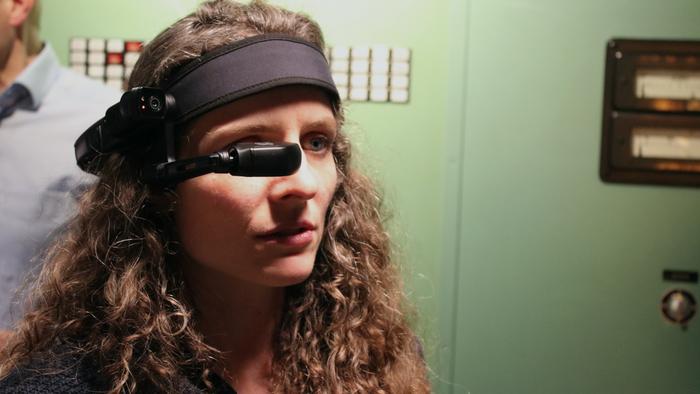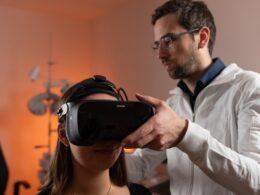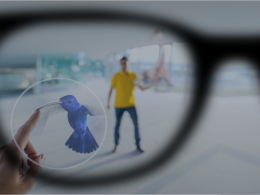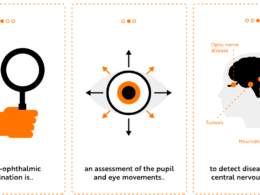SBB, Augment IT by Netcetera and Realwear presented the advantages of data glasses at an event in Zurich. The smart devices could, for example, counteract the loss of knowledge in companies.
In order to elicit the potential of data glasses, the SBB, the data glasses manufacturer Realware and Augment IT in Zurich. Augment IT is more or less an internal start-up of the Zurich software developer Netcetera, which specialises in augmented and virtual reality solutions. In front of around 30 guests, the three companies used the example of machine maintenance to present what the everyday working life of tomorrow could look like.
What the data glasses from Realwear can do
The focus was on the Navigator 500 data glasses from Realwear. The data glasses work independently and do not have to be connected to a PC. They have speakers, a microphone, a camera and a display that is mounted in front of the right eye. For example, users can talk to experts on the phone while they show help on the display. Since you cannot see through the display - as with the Hololens, for example - but you can still see your surroundings, this is referred to as assisted reality.
The noise suppression works up to a volume of 100 decibels, said Frédéric Plasson, Regional Director Alps & Eastern Europe at Realwear. This means that video telephony works without problems even in machine halls with a lot of noise. The device is controlled by voice commands. To start an application, for example, you only have to say the name of the app.
The device, which costs around 2000 euros, is also quite robust. You can drop it from a height of 2 metres onto concrete without damaging it. During the demonstration, Plasson was even standing on the device and it still worked without any problems afterwards. The unit can be used in temperatures from minus 20 to plus 50 degrees. The battery lasts 6 hours in heavy use and up to 10 hours in normal use. The battery can also be replaced during operation; a built-in second battery bridges the time needed for replacement.
Realwear is currently working on making the camera and display modular. Alternatively, the manufacturer already offers a thermal camera.
How SBB is testing data glasses
When it comes to maintaining its vast infrastructure, SBB faces a challenge: "Because the equipment and processes in railway operations are becoming increasingly complex, SBB has to deal with the problem of knowledge transfer," said Günhan Akarçay, Head of Center of Competence on Extended Reality at SBB.
This is also necessary because young employees today rarely spend their entire working life with one employer and change jobs more frequently. If, on the other hand, a company can preserve know-how - for example with the help of AR technology - this counteracts any brain drain.
Extended Reality is useful in three areas: They could help with training to convey complex theory intuitively and vividly. They could help with step-by-step instructions, for example, in the maintenance of machines. And they could be used for remote support in troubleshooting. Specialists could thus help out with malfunctions anywhere in Switzerland.
What employees think of data glasses
Acceptance by employees is an important factor for SBB in such projects. For such pilot projects, SBB relies on early adopters who would like to test such technologies.
Reto Grob, Managing Director of Augment IT, took up the topics of training and acceptance again in his speech. He pointed out one advantage of assisted remote maintenance compared to "only" trained employees: "Mind the gap to reality".
The training takes place in a training room. But the actual work happens much later and in a completely different place. This means that the employees then have to call up specialist knowledge that may already be far away in terms of time and location. With data glasses, the knowledge is fresh and right in front of their eyes.
"This technology is not a trend that will pass, but something that will come in the long term," Grob said. The only question is when. But acceptance has already risen sharply in recent years. This is partly due to the fact that manufacturers are constantly launching new, better devices. This, in turn, will lead to a further increase in acceptance.
Source: it-markt









